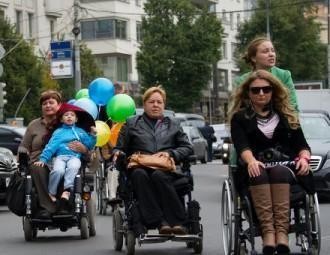Deputy Minister of Labor: Belarus will soon sign UN Convention on the rights of the disabled

Belarus will sign the UN Convention on the Rights of Persons with Disabilities soon, Aliaksandr Rumak, Deputy Minister of Labor and Social Security, told reporters in Minsk on January 5.
Aliaksandr Rumak said that work on a government directive approving Belarus' accession to the convention was in its final stages. "I want to assure you that the Republic of Belarus is moving toward the signing and ratification of the convention," the Deputy Minister said.
However, as naviny.by informs, Rumak did not say when the convention might be signed by Belarus, announcing that this year the Ministry of Labor and Social Security would begin work on a state program seeking the social integration of disabled and senior people, as well as devise measures to secure an accessible environment in all spheres for people with disabilities.
"People get the impression that a barrier-free environment boils down to wheelchair ramps or an elevator in a subway station, but we are pursuing the task of creating a barrier-free environment in all spheres. That means disabled people's access to all sports facilities, the accessibility of information, a wider use of subtitles for TV broadcasts, that concerns cultural venues and hotels," he said.
Earlier EuroBelarus Information Service published an interview with Siarhei Drazdouski, the coordinator of the "Office on the Rights of Persons with Disabilities", who initiated the information campaign “Sign with your heart”. “We will be working with the government at the level of experts and lobbyists, - says Siarhei Drazdouski. – We will continue our cooperation with the Ministry of Labor and Social Security as well as with the Ministry of Education so that to take some steps that would bring Belarus closer to the signing of the Convention”.
Let us recall that the UN Convention on the Rights of Persons with Disabilities came into effect in 2008. 143 countries sign it; and Belarus is among the few remaining European and CIS countries, which didn’t sign the document. The government of the country announced yet again that the Convention would be considered at the autumn session in 2014.
-
03.01
-
07.10
-
22.09
-
17.08
-
12.08
-
30.09



























